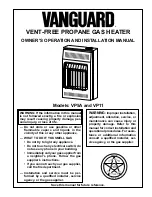
6 720 817 281 (2017/05)
Greentherm 9800 SEO 160/199 | SECO 199
Troubleshooting | 33
10.7 Noisy burner/heater during operation
Burner noises can be heard if combustion is not properly set.
This could be caused by improper gas supply conditions (gas
pressure and/or gas composition).
Two types of noise can be heard: low pitch noise/vibration
(rumbling) and high pitch noise/vibration (whistling).
10.7.1 High pitch noise
1. Verify if correct gas type is selected (see section 10.13).
2. Verify is gas pressure is within specified range (see
section 3.2).
If gas type is properly selected, gas pressure is within range
and the problem persists:
3. Perform the gas and air adjustment as described in
section 10.11.
10.7.2 Low pitch noise
1. Verify if correct gas type is selected (see section 10.13).
2. Verify is gas pressure is within specified range (see
section 3.2).
If gas type is properly selected, gas pressure is within range
and the problem persists:
3. Perform the gas and air adjustment as described in
section 10.11.
10.8 Error codes C1, C2, CF and/or CE
C1, C2, CF and CE errors could be caused by an obstruction in
the venting.
1. Verify if there are any venting obstructions and remove
them if that is the case.
2. Reset the error by holding the On/Off button for 3s.
If there are no obstructions, and the problem persists:
3. Perform the gas and air adjustment as described in
section 10.11.
10.9 Error codes EA and/or EC
EA and EC errors can appear if combustion is not properly set.
This could be caused by improper gas supply conditions (gas
pressure and/or gas composition).
1. Verify if correct gas type is selected (see section 10.13).
2. Verify is gas pressure is within specified range (see
section 3.2).
If gas type is properly selected, gas pressure is within range
and the problem persists:
3. Perform the gas and air adjustment as described in
section 10.11.
10.10 Manifold gas pressure
The manifold gas pressure measurement is only carried out if it
is necessary to confirm the value from the rating plate.
▶ Turn Off the appliance.
▶ Remove the front of the appliance (see page 9).
Fig. 28
Pressure head points
[A]
Air pressure head in the box
[B] Gas pressure head in the burner
[C] Tee (installer supplied)
▶ Loosen the shutter screw of the pressure head point [B].
▶ Connect the pressure gauge connection "+" to the test
point [B].
▶ Loosen the shutter screw of the pressure head point [A].
▶ Connect the pressure gauge "-" to the pressure head point
[A].
▶ Turn On the appliance.
▶ Open all hot water taps to achieve a flow rate of at least 6
gallons per minute. (1 tub and 2 sinks should be sufficient).
If heater goes back to P2, open more hot water fixtures to
allow sufficient flow and access to
P1 menu
.
▶ Record the manifold gas pressure reading in table 15.
Manifold gas pressure refers to the relative pressure
between gas manifold nozzles inlet and outlet [A]-[B].
▶ Turn Off the appliance.
Value
Date
Manifold gas
pressure
Table 15
















































